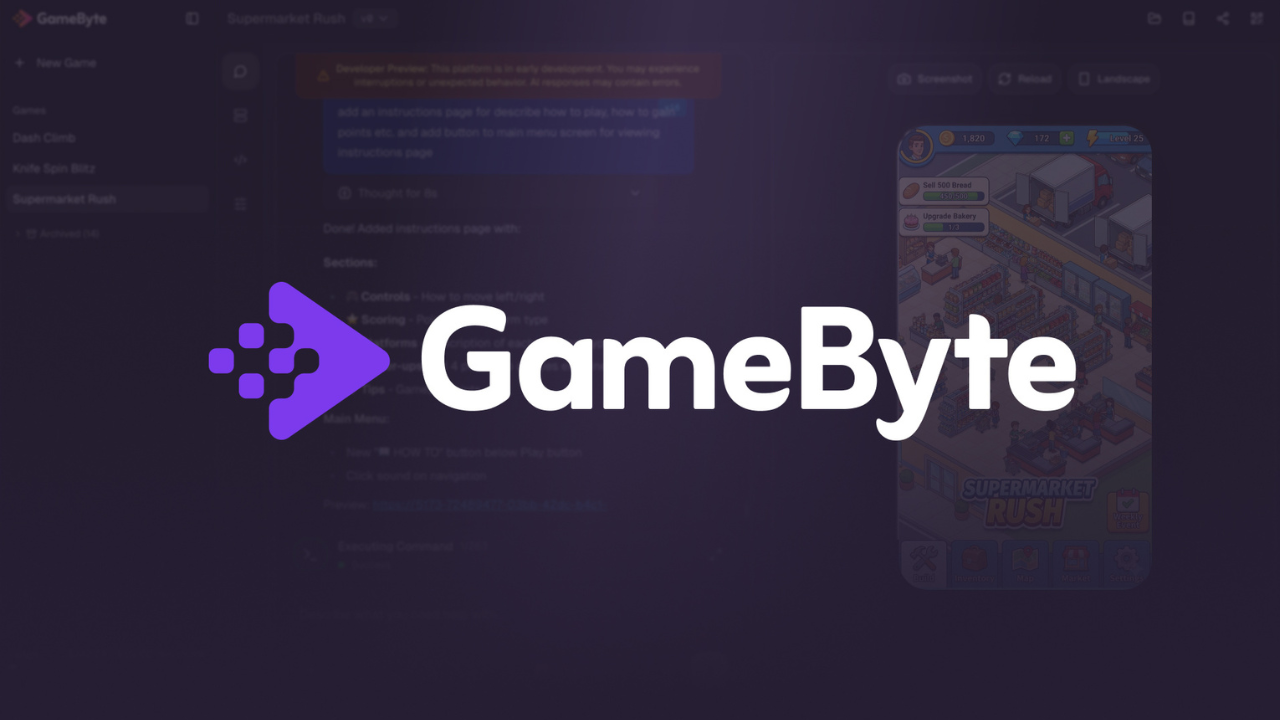İstanbul Slush’D set the stage for a lively discussion on the future of mobile gaming. In the panel “The Art and Science of Mobile Game Design: A Studio’s Playbook”, Görkem Türk of Laton Ventures moderated a conversation with Burak Vardal of Rollic and Akın Babayiğit of Arcadia, touching on talent, adaptability, artificial intelligence, and what Türkiye can learn from China’s fast-moving market.
Shaping Teams for Mobile Gaming
Akın Babayiğit noted how Türkiye’s top graduates increasingly choose mobile gaming over traditional career paths. “If you’re a graduate of one of the top schools in Turkiye, you don’t really go to McKinsey, you don’t go to Goldman, you don’t go to banks, you go to mobile gaming companies. And I think that is very different than anywhere else in the world,” he said.
He explained that mobile gaming, as a young industry only 15 years old, evolves rapidly and requires a different hiring approach.
“What we did differently and that worked really well for us is… we explicitly did not hire for experience. And that’s really hard to do,” he said, describing how many companies default to hiring experienced user acquisition or marketing professionals. Instead, Babayiğit’s approach was to focus on IQ, grit, hustle, and resourcefulness. His teams were often made up of young graduates from top universities in the UK and Türkiye.

Burak Vardal agreed, emphasizing that mobile gaming changes so fast that experience is often less useful than adaptability. “The only thing we know about mobile gaming is we don’t know anything. And it changes really fast,” he said. He added that Türkiye’s social and economic conditions encourage young people to work hard and adapt quickly, which strengthens the sector.
Vardal highlighted that while the mobile sector has developed a strong foundation, other areas of gaming require more institutional support. “For mobile, we’re quite set well at this point, but I think for the future, we need more institutions to improve the other parts of gaming, like narrative design, like VFX, like ideating a PC console game, and creating game design on top of it. So, those skill sets we still lack,” he said.

Görkem Türk added from the investor perspective, stressing that decision-making is one of the most important skills founders can bring. In mobile gaming, he said, leaders must be ready to make dozens of decisions across different levels of the business, from product details to company culture. “Nobody can be 100% right in all the decisions, but being right in the majority of them and managing time effectively is crucial,” Türk said.

The Role of AI in Mobile Gaming
Türk then shifted the conversation to artificial intelligence, asking the panelists about AI’s role in the industry.
Akın Babayiğit explained that while he does not consider himself a gamer, he is drawn to the mix of creativity and analysis in gaming. He sees AGI as less than five years away, with profound implications for industries including games.
While current AI tools are useful for workflows, he said the real breakthrough will come when AI can ideate and conceptualize games based on the vast data generated by players.
We have 4 billion downloads, we have 25 million daily actives, and we have the data that we should be able to train an AI to ideate games, to conceptualize those games, and to test those games. We’re not there yet, but I think we’re very, very close, and the whole thing will change.”
Akın Babayiğit, Managing Director, Arcadia
Burak Vardal added that Türkiye’s strength lies in applying consumer-facing technologies. For him, AI’s immediate importance is in user acquisition creatives, art asset generation, animations, and automated level design.
For Vardal, AI will not decide what to produce, but it will enable faster, higher-quality production — which is enough for the next five years.
“We didn’t invent a game engine from Turkiye; we used Unity. But we built the best consumer-facing entertainment assets of mobile gaming.
“If you’re not using it, you’re going to lose in competition.”
Burak Vardal, Co-Founder & CEO, Rollic
Görkem Türk noted that even small AI-driven improvements can have major commercial consequences.
“If AI is able to make 5% improvement in either your lifetime value or CPI, all of a sudden, you are talking about a different business scale. So I think that minor technical improvements will yield huge commercial impact in the short term for the industry.”
Görkem Türk, Laton Ventures, Founding Partner
Lessons from China
In his final remarks, Akın Babayiğit turned attention to China. He encouraged attendees to study the country’s gaming ecosystem closely, pointing out that among the seven new entries in the global top 30 mobile games, six were from China and one from Turkiye (Color Block Jam).
He argued that innovation in the next decade is likely to come from the East rather than the West.
“If you combine all these things we talked about, speed of execution, the hustle mentality, AI, etc., I would encourage everyone to, if you can, visit China, and if you can’t visit China, try to understand what’s going on on the ground, because there’s going to be a profound change of where innovation comes from in the next 5 to 10 years.”
Akın Babayiğit, Managing Director, Arcadia
Burak Vardal added that many of the successful Chinese games belong to genres such as action RPG and 4X strategy, which Turkish developers have yet to fully explore.
“We are trying to keep a portion of our production as an action RPG and try to focus on that area, which is really hard compared to puzzles. It’s a different landscape, different perspective.”
Burak Vardal, Co-Founder & CEO, Rollic
Vardal suggested that combining the creativity of the West with the work ethic of the East could help Turkish developers continue producing strong results.





